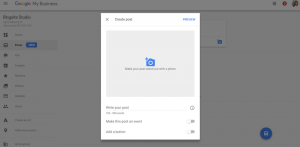
Follow these 11 tips to reduce (or even prevent) employee poaching at your agency.
Great team members are highly valuable—which means other companies are trying to poach your best employees.
You’ve worked hard to build and invest in your agency’s team—so why wouldn’t someone else want to reap the benefits?
Your employees can leave any time they want… but it hurts the most when a competitor lures them away.
Yet employee poaching is a fact of life. Instead of getting frustrated, acknowledge the reality—and then do your best to keep current employees happy, because happy employees tend to stay.
In my work as an agency consultant, I’ve identified 11 proactive steps that you can take right now to reduce employee poaching at your agency—or potentially prevent poaching from happening at all.
11 ways to reduce employee poaching at your agency
Since I’m not a lawyer, you’ll want to speak with your HR advisor(s) to customize this advice to your situation.
- Accept that poaching is a business norm. You might be thinking, “My team’s happy; no one’s been poached yet!” The key word is “yet”—in a hot labor market, odds are good that someone’s being wooed right now. Be prepared and act accordingly.
- Commit to keeping employees happy. Are you monitoring morale, especially among your best employees? Happy employees tend to stay—and unhappy employees leave, and they often take others with them. That doesn’t require endless raises or 10-hour workweeks—but even simple changes help. For instance: caring about employees as humans, a “summer Fridays” schedule, and a consistent “thank you” for a job well done.
- Pay people fairly. As Netflix notes on their career page: “To help us attract and retain stunning colleagues, we pay employees at the top of their personal market. We make a good-faith estimate of the highest compensation each employee could make at peer firms, and pay them that maximum.” Top talent knows their value. If you’re not paying your people fairly, you’re setting yourself up for a poaching scenario.
- Include appropriate language in your employee, contractor, and client agreements. Talk to your lawyer; this typically includes a non-solicitation clause, and may include a non-compete clause (although those are sometimes unenforceable). When I advise my clients about hiring, I recommend they ask candidates if hiring them would violate any agreements with their current employer—but your competitors may not ask first.
- Don’t hide your team list. If your team is happy, it won’t matter that they’re listed on your website or on LinkedIn. For most independent agencies, I generally recommend listing 100% of the team on your website because it conveys transparency and humanizes the team that’s working on behalf of your clients. If a client wants a huge firm and you’re a “small” agency (the word “small” is relative!) they likely won’t hire you anyway. But if an agency doesn’t list any people, it looks like they’re hiding something.
- Be careful about paying retention bonuses and unplanned raises. You might need them, but they set risky precedents and can become a seriously slippery slope. Some agency owners might also be tempted to share equity with key employees—but your generosity can create new issues. Ideally, keep your labor ratio within 50-60%. (“Labor ratio” is your total labor expenses—including owner compensation—as a percentage of services revenue).
- Structure your compensation to incentivize performance and retention. This may include phantom stock and other forms of carefully shared equity. As I stated in #4, get a lawyer’s advice about your key legal agreements; they’re too important to outsource to a DIY template.
- Help employees envision their future at the agency. In my work as a consultant, agency employees are often confident about the agency’s future but unclear how they fit into that future. They’re more likely to stay if they can see their career path at your agency.
- Try to accommodate life changes for great employees. If a “New Rope” employee wants to move away or down-shift to part-time, try to make it work if you can. When I was an agency operations lead, both agencies had employees who started in-office then worked remotely after moving to other states. Talk to your HR advisor to ensure you address compliance issues for non-local employees.
- Ensure new hires truly want to work for your agency. Be clear on your recruiting strengths and weaknesses as a smaller firm. Being a small agency gives you a number of strengths over bigger (or higher-paying) firms. And if someone is coming from an in-house role, be sure the candidate knows what they’re getting into at an agency of your size; if you don’t dig-into confirming this, they’re likely to leave early.
- Decide whether you’ll poach employees yourself. Your opinion on poaching probably depends on whether you’re typically the victim or the beneficiary. As product engineer Kate Heddleston has noted, there are two ways to get great employees: “You can steal them or you can make them.” There isn’t a “right” answer for what to do—but once you decide, create a formal policy or at least a set of general guidelines. And yes, talk to your lawyer.
Question: What are you doing to protect against employee poaching at your agency?
Business & Finance Articles on Business 2 Community
(38)







